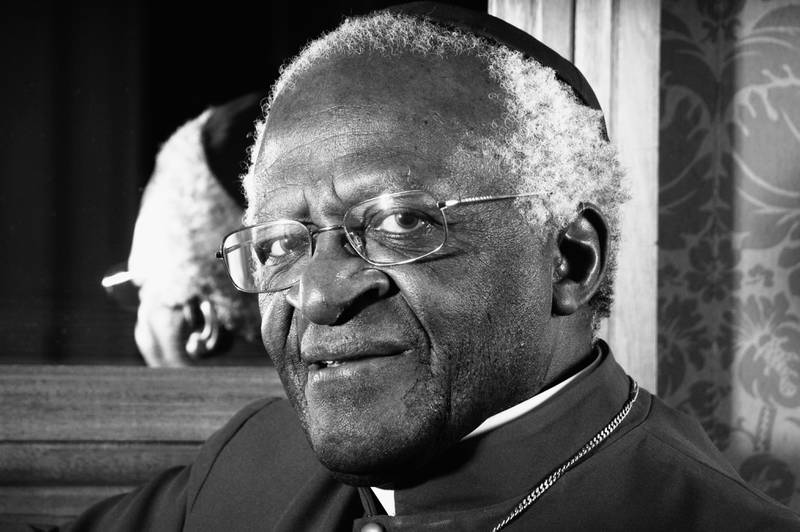A look back at Desmond Tutu's greatest quotes, from kindness to forgiveness

Archbishop Desmond Tutu, a Nobel Peace Prize laureate who helped end apartheid in South Africa, has died aged 90. In addition to his role as one of the driving forces behind his country's movement to end racial segregation and discrimination, he spent a lifetime inspiring many through his words.
Whether from books or speeches, Tutu never hesitated to use humour or anger to express his values and outrages. He was the author of seven collections of sermons and other writings.
On kindness
“Do your little bit of good where you are; it's those little bits of good put together that overwhelm the world.”
“Cultivate your forgiveness with your friends, with your family, with strangers, and with yourself. Remind yourself that every person you encounter carries a sorrow and a struggle. Recognise that we all share a fundamental humanity.
"We are made to exist in a delicate network of interdependence. We are sisters and brothers, whether we like it or not. To treat anyone as if they were less than human, less than a brother or a sister, no matter what they have done, is to contravene the very laws of our humanity. And those who shred the web of interconnectedness cannot escape the consequences of their actions."
On forgiveness
“We are not responsible for what breaks us, but we can be responsible for what puts us back together again. Naming the hurt is how we begin to repair our broken parts.”
“Forgiving is not forgetting; it's actually remembering – remembering and not using your right to hit back. It's a second chance for a new beginning. And the remembering part is particularly important. Especially if you don't want to repeat what happened.”
“In our own ways, we are all broken. Out of that brokenness, we hurt others. Forgiveness is the journey we take toward healing the broken parts. It is how we become whole again.”
“Giving the emotion a name is the way we come to understand how what happened affected us. After we’ve told the facts of what happened, we must face our feelings. We are each hurt in our own unique ways, and when we give voice to this pain, we begin to heal it.”
“Forgiveness is nothing less than the way we heal the world. We heal the world by healing each and every one of our hearts. The process is simple, but it is not easy.”
On apartheid
“We shall be free only together, black and white. We shall survive only together, black and white. We can be human only together, black and white.” “People are not born hating each other and wishing to cause harm. It is a learned condition.”
“Differences are not intended to separate, to alienate. We are different precisely in order to realise our need of one another.” “Be nice to whites, they need you to rediscover their humanity.”
“It was relatively easy, we now realise, to categorise countries and nations. You knew who your enemies were and whom you could count on as collaborators and friends. And even more importantly, you had ready-made scapegoats to take the blame when things were going wrong.”
On loving yourself
“Transformation begins in you, wherever you are, whatever has happened, however you are suffering. Transformation is always possible. We do not heal in isolation. When we reach out and connect with one another – when we tell the story, name the hurt, grant forgiveness, and renew or release the relationship – our suffering begins to transform.” “We are made for loving. If we don’t love, we will be like plants without water.”
“Much depends on your attitude. If you are filled with negative judgment and anger, then you will feel separate from other people. You will feel lonely. But if you have an open heart and are filled with trust and friendship, even if you are physically alone, even living a hermit’s life, you will never feel lonely.”
“There comes a point where we need to stop just pulling people out of the river. We need to go upstream and find out why they’re falling in."
“We are fragile creatures, and it is from this weakness, not despite it, that we discover the possibility of true joy.”
On resiliency
“Discovering more joy does not save us from the inevitability of hardship and heartbreak. In fact, we may cry more easily, but we will laugh more easily too. Perhaps we are just more alive. Yet as we discover more joy, we can face suffering in a way that ennobles rather than embitters. We have hardship without becoming hard. We have heartbreaks without being broken.”
